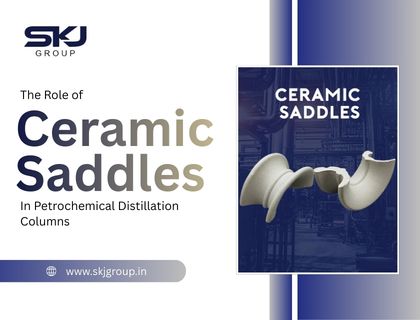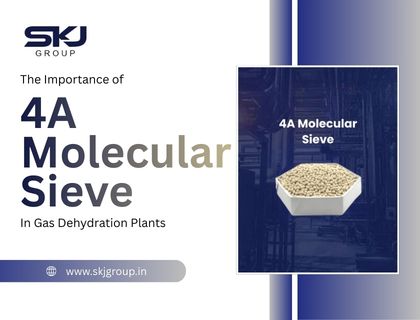How Can Ceramic Tiles Protect Industrial Floors from Chemical Damage?

What Industrial Uses Make Plywood Essential for Material Handling?
July 10, 2025
What Makes Ceramic Rings the Best Choice for Industrial Packing Towers?
July 14, 2025Industrial floors endure extreme conditions—from heavy machinery and high foot traffic to spills of corrosive chemicals. Without proper protection, these factors can lead to costly damage, downtime, and safety hazards. This is where ceramic tiles protect industrial floors by offering a durable, chemical-resistant, and low-maintenance solution.
In this blog, we’ll explore how ceramic tiles act as a shield for industrial flooring, the benefits they provide, and why top ceramic tiles manufacturers in India are the go-to source for industries seeking long-term performance and reliability.
Why Industrial Floors Are Vulnerable to Chemical Damage
Understanding the Risks
Industries such as pharmaceuticals, food processing, chemical plants, and refineries deal with:
- Acidic and alkaline substances
- Oils, solvents, and detergents
- High-pressure cleaning
- Heavy load movement
Without the right flooring, these can lead to:
- Surface erosion and cracks
- Chemical corrosion
- Safety hazards for workers
How Ceramic Tiles Offer Superior Protection
1. Chemical Resistance
Ceramic tiles are made from natural materials and fired at high temperatures, making them:
- Highly resistant to acidic and alkaline chemicals
- Impervious to staining or surface etching
- Suitable for zones where spills are frequent
2. Easy Maintenance and Cleaning
Compared to epoxy coatings or vinyl, ceramic tiles:
- Don’t degrade with frequent cleaning
- Offer stain-free surfaces
- Require only basic cleaning with water or neutral solutions
This makes them perfect for industries where hygiene and cleanliness are mandatory.
3. Durability and Longevity
Ceramic tiles used in industrial settings are:
- Thicker and denser than domestic variants
- Impact-resistant and capable of withstanding forklifts and trolleys
- Crack-resistant when properly installed over stable subfloors
4. Slip Resistance and Safety
Many ceramic tiles suppliers offer anti-skid surfaces ideal for:
- Wet process areas
- Chemical storage rooms
- Wash-down zones
These reduce slip-related accidents and meet safety compliance standards.
5. Temperature Tolerance
Industrial environments often experience wide temperature fluctuations. Ceramic tiles can:
- Withstand both high heat and extreme cold
- Maintain shape and bond without cracking
- Be used near furnaces or cooling systems
Applications of Ceramic Tiles in Industrial Settings
A. Food Processing Plants
- Prevent bacterial growth with non-porous surfaces
- Withstand acidic food by-products like vinegar and citrus
- Maintain hygiene standards easily
B. Pharmaceutical & Chemical Industries
- Resist aggressive solvents and lab-grade chemicals
- Meet clean room requirements
- Are compatible with steam and chemical sterilization
C. Warehouses and Logistics Hubs
- Handle heavy forklift traffic
- Minimize wear and tear
- Offer long-term savings over epoxy coatings
Why Indian Manufacturers Lead in Industrial Ceramic Tiles
Trusted Quality and Cost-Effectiveness
India is home to some of the top ceramic tiles manufacturers, offering:
- Advanced production technology
- Customizable sizes and surface finishes
- Bulk supply capacity
Partnering with a reliable ceramic tiles manufacturing company ensures product consistency and expert support during installation.
Tips for Choosing the Right Ceramic Tiles for Industrial Use
- Check Chemical Resistance Ratings
- Select Matte or Textured Surfaces for Wet Areas
- Opt for Tiles with a Minimum Thickness of 10-12mm
- Confirm Thermal Expansion and Shock Resistance Specs
- Ask for Certifications (ISI, ISO, CE) Before Buying
FAQ Section
Q1: Are ceramic tiles better than epoxy flooring?
A: Yes, ceramic tiles are more durable in the long term, especially in areas exposed to chemicals, abrasion, and high temperatures.
Q2: Can ceramic tiles handle forklift movement?
A: Industrial-grade ceramic tiles are designed to handle heavy loads and can easily withstand forklift operations.
Q3: What size tiles are best for industrial floors?
A: Typically, larger format tiles (600x600mm or 1000x1000mm) are used to reduce grout lines and ensure faster cleaning.
Q4: Do ceramic tiles need chemical sealants?
A: Most industrial-grade tiles are already non-porous and don’t need sealing. However, sealing the grout is recommended for chemical-heavy areas.
Conclusion
From resisting harsh chemicals to minimizing maintenance, ceramic tiles protect industrial floors like no other material. Their durability, slip resistance, and hygiene-friendly properties make them a practical, long-lasting solution across industrial sectors.
Whether you’re planning a new plant or upgrading an old factory floor, consider sourcing from trusted ceramic tiles manufacturers in India for quality, reliability, and affordability.
Looking for high-performance ceramic tiles for your facility?
Reach out to our expert team of ceramic tiles suppliers for custom solutions tailored to your industry.




